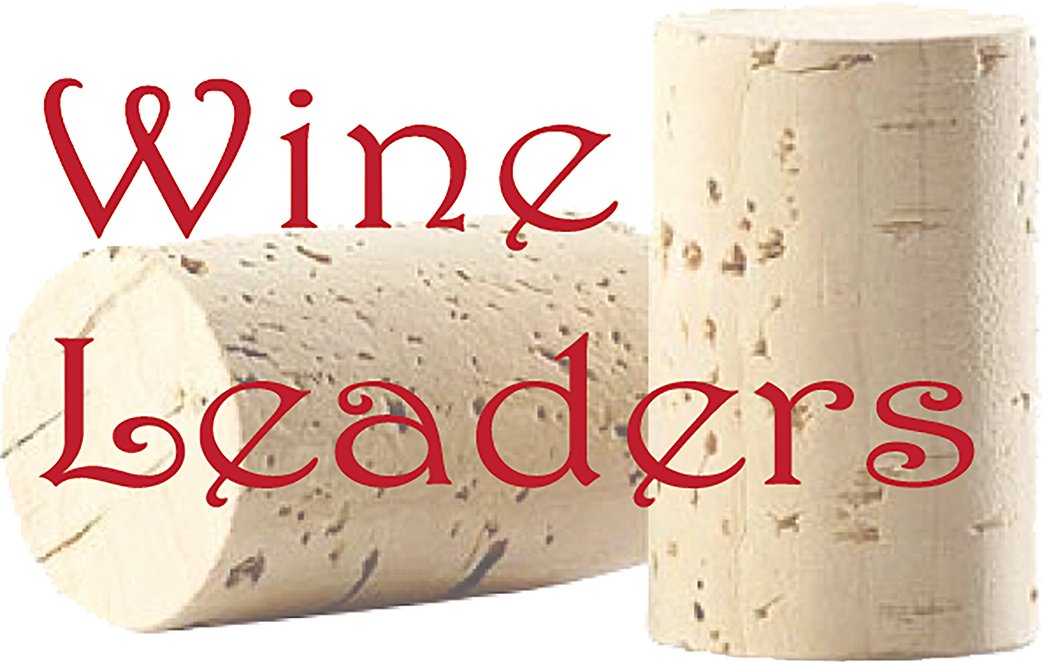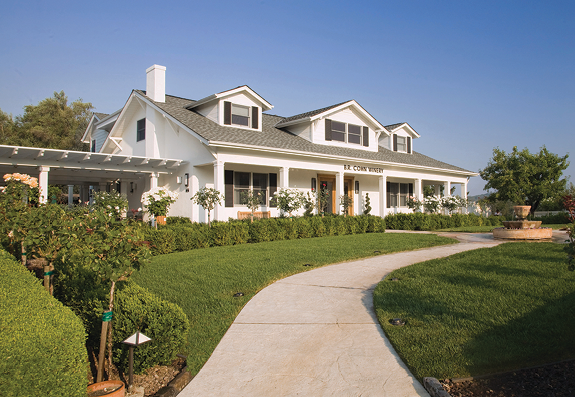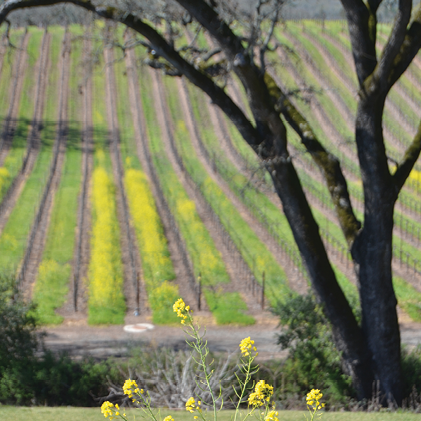- Home
- Media Kit
- Current Issue
- Past Issues
- Ad Specs-Submission
- Ad Print Settings
- Reprints (PDF)
- Photo Specifications (PDF)
- Contact Us


![]()
ONLINE

Integrating
Music and Wine
Editors’ Note
Debra Eagle began her wine career at Kenwood Vineyards in 1994, where she handled international sales and marketing for founder Marty Lee. Career highlights over the past 24 years have included marketing the Robert Mondavi Winery in Oakville, launching the exclusive BOND winery for Bill Harlan in 2004 (also in Oakville), and now overseeing B.R. Cohn Winery for its parent company, Vintage Wine Estates. A native Northern Californian, Eagle has a B.A. in economics from Mills College and an M.B.A. from UC Berkeley.
Winery Brief
Under the sun in the valley of the moon, B.R. Cohn Winery (brcohn.com) has been making small lot, vineyard designated wines since 1984. Nestled between Sonoma Mountain and the Mayacamas Mountain ranges, the winery offers an inviting, relaxed environment for discovering new wines. Enjoy a memorabilia room that showcases founder Bruce Cohn’s 45 years of rock-n-roll managing The Doobie Brothers, saddle up to the wine bar or sit outside to enjoy the sunshine, heritage Picholine olive grove and rolling hillside vineyards.

B.R. Cohn Winery
Will you discuss the history and heritage of B.R. Cohn?
B.R. Cohn was founded by Bruce Cohn in 1984. He bought the estate, which was approximately 90 acres, a decade before that. He was the manager of The Doobie Brothers, and he retired from the wine business and as the manager of The Doobie Brothers after 45 years in 2015.
He had grown up on a goat dairy farm in West Sonoma County. When The Doobie Brothers made it big around 1973 and he was busy on the road, he wanted his children to grow up in a rural area like he did. He bought this defunct dairy ranch perched on a slight incline in the middle of Sonoma Valley.
When he bought it, there were a few blocks of grapes, but it was not a vineyard, and there were about nine acres of olive trees, which turned out to be old French trees that were planted in the mid-1800s.
He was mentored by Charlie Wagner, who was the founder of Caymus. In the 1970s when Bruce was traveling with the band, he was studying viticulture books and trying to figure out how to plant a vineyard, and Charlie helped him with that. He planted and sold grapes for about a decade.
Bruce named his property Olive Hill because of the trees I mentioned earlier, and wines started to get high scores back then using Bruce’s fruit. After President Reagan presented Olive Hill Cabernet to the Chinese President, Bruce felt he should open his own winery. Charlie was a big supporter and encouraged him to do so.
He started his own winery in 1984. He wanted to name it Olive Hill but there was a winery in Temecula that had the name, so he used his own name, B.R. Cohn, for the label, which has a picture of an olive branch on it.
Bruce hired his first winemaker out of the cellar of Gundlach Bundschu, a woman named Helen Turley, who has gone on to be a big name in the business. His third winemaker was Merry Edwards.
Bruce has a knack for spotting talent. For years, he was both running the winery and managing the band.
Early on, he wanted to integrate his music business into the winery, so he launched a music series that ran here for 28 years and that we are currently working with LiveNation to bring back to the winery.
The last concert at the winery was in 2014 and we are working to bring it back in 2018.

B.R. Cohn Vineyards
What have been the keys to B.R. Cohn’s success?
I’ve spent most of my career in Napa and I launched a high-end winery, so I have a certain frame of reference. When I got to B.R. Cohn in 2015, during the final weeks of the purchase by Vintage Wine Estates, I was amazed by the wine quality.
The estate itself is perched over a hot spring. What that means is that we don’t suffer from frost, and we have a longer growing season. The fruit itself is spectacular.
In the end, Bruce ended up planting primarily Cabernet Sauvignon, but we do have all five Bordeaux varietals and the wine is wonderful.
Our mainstay is the Olive Hill Cabernet and we have a small bottling of a Malbec, Petit Verdot and Cabernet Franc from the estate. We also make three more expensive wines – there is a Block 3, which is from some of the older original plantings that were here when Bruce bought the property, and there is a Block 7. Finally, Charlie Caymus gave Bruce the honor to do a bottling of what he thought were B.R. Cohn’s best vineyard and cellar selections, so we have Special Selection Cabernet, which is a very famous Caymus brand. We are the only other winery allowed to use that nomenclature.
We have some great estate wines and a number of wines we source throughout the area.
With the proliferation of wine brands, how challenging is it to tell a brand’s story?
It’s very difficult. I cannot think of another consumer or industrial product category of any kind in the world that has more individual competitors. There are over 8,000 wineries in the U.S. and the list expands internationally.
The loosening of wine shipping laws, which began 15 years ago, has really allowed for the proliferation of brands because small wineries have now been able to develop a direct-to-consumer business.
We work very hard to keep in front of the consumer. This is why we want to work to maintain the legacy of music, which was such a part of the winery for Bruce. We also plan to circle back to the olive tree story.
In 1990, Bruce started harvesting the olives on the estate. He was the first in Northern California to do an artisan olive oil pressing. He went on to help create California’s standards for extra virgin olive oil. The olive producers eventually formed the California Olive Oil Council, and those standards have gone on to become state law. The criteria for measuring the quality of olive oil began here.
Bruce bottled his first olive oil in 1990 and went on to create an entire line of olive oils and wine vinegars. We have an olive oil company with wonderful products. That is another point I have worked hard to continue, because there are so many brands and I want to build on what set us apart to begin with. The quality of fruit is here, but that’s not always enough.•